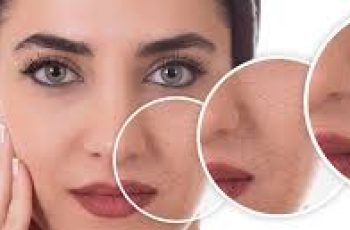
Today, niacinamide has become one of the most popular skin care ingredients for many reasons. In this article, we’ll take a look at the various skin benefits of niacinamide, what’s in your serum, and how to use it, according to
reputable, board-certified dermatologists.
What is niacinamide? Niacinamide is a form of vitamin B3, a water-soluble vitamin that is essential for overall body and skin health. As nationally certified dermatologist Dr. Davin Lim explains, niacinamide is considered a very
flexible active ingredient explaining that it is actually one of the easiest skin care vitamins to use because it is paired with vitamin C A (also known as It has high tolerability and an extremely low frequency of side effects
compared to even vitamin C (retinol).
Niacinamide serums are a great way to incorporate the many skin benefits of niacinamide into your daily skin care routine because serums – due to their lightweight formula – can deliver high concentrations of active ingredients
into the skin to specifically target or treat specific skin problems.
What are the benefits of niacinamide for skin? According to nationally certified dermatologist Dr. Shereen Idriss, topical niacinamide can perform many different functions in the skin, such as:
Therefore, it is important to keep the skin intact and firmly connected through keratin in order to maintain the immune function of the skin and better protect us from external factors. Improves lipid barrier function:
Nicotinamide can also increase ceramide production.
Ceramides are lipids that act as intercellular “glue” to hold skin cells together, keeping skin soft and hydrated. Increased ceramide production allows the skin to retain its natural moisture, which can be helpful in treating
certain conditions such as eczema.
Anti-inflammatory effects: Nicotinamide has been shown to reduce the production of several mediators and molecules involved in the inflammatory process [1]. Therefore, it is beneficial for acne patients who have inflammatory
bumps and pimples.
In addition, niacinamide may help reduce redness, which may be beneficial for people with rosacea, as Dr. Lindane suggests. Regulates oil production: Niacinamide 2% has been shown to control the production and excretion of
sebum, which is responsible for facial shine and acne formation.
Helps even skin tone: There is evidence that nicotinamide may be an effective compound that inhibits the transfer of melanin granules (also called melanosomes) from melanocytes to keratinocytes.
Although niacinamide alone may not be as effective against hyperpigmentation, explains Dr. Shereene Idriss says it boosts the effects of other ingredients like vitamin C, kojic acid and arbutin to help achieve a more even skin
tone.
Anti-aging effects: Niacinamide has the potential to promote skin collagen synthesis and inhibit its breakdown, thereby providing firmness, improving surface texture, and smoothing fine lines and wrinkles. So what can
niacinamide be used for?
Due to its numerous proven biological functions in the skin, niacinamide may be suitable for all skin types to treat different skin concerns. Certified dermatologists use it for: Acne prone skin and oily skin.
What is the optimal application concentration? Now that you know its many benefits and uses, you might be thinking that the higher the concentration of nicotinamide in your serum, the better, right? We’re here to tell you that’s
not true.
Niacinamide serums are available in concentrations of 2% to 20%, with 10% being the most common. However, nationally board-certified dermatologist Dr. Jenny Liu points out that most of the benefits of niacinamide have been
demonstrated at lower concentrations of 2 to 5 percent, while at higher concentrations, no studies have shown actual benefits.
In fact, Dr. Shereene Idris points out that “more is not enough,” and serums above 5% (like those in a 10% formula) can cause irritation, inflammation, and breakouts—all skin problems you really want to treat.
In that order, most board-certified dermatologists recommend using a niacinamide serum with a concentration between 2% and 5%. Additionally, you can look for serums that already combine niacinamide with other ingredients to
minimize the number of products used to treat a specific skin concern, such as Dr. Shailene Idris recommends.
For these 10% serums, Dr. Shereene Idriss believes that when formulated with 1% zinc (such as regular niacinamide serum), the zinc acts as an anti-inflammatory agent, greatly reducing the inflammatory potential of niacinamide.
How to use niacinamide serum correctly? The great thing about niacinamide, says Dr. Davin Lim says it combines well with most skincare ingredients, like retinol and vitamin C. In this regard, niacinamide serum can be used with
other skin care products without any incompatibility.
– Should you use it in the morning or evening? It can be used in the morning and/or evening, but most people prefer to use the Niacinamide Serum at night, which is what Dr. Davin Lim recommends.
– How to use it? If you’re new to niacinamide serums, Dr. Shereene Idriss starts with using it once a day to see how your skin responds to this new product.
When it comes to your skin care routine, products should be used in a specific order. In a basic skin care routine, serum should be used after cleansing and before moisturizing (either morning or evening). Why in this order?
Nationally certified dermatologist Dr. Muneeb Shah divides skin care into three stages:
1. Cleanse: It’s important to remove dirt, sweat, oil, and impurities so that your skin remains clean and ready to reap the benefits of skin care products and active ingredients.
2. Treatment: This step is dedicated to using a serum rich in active ingredients that targets your skin’s specific concerns.
3. Protect: This step involves applying moisturizer to prevent moisture loss from the skin, followed by sunscreen (AM procedure) to protect the skin from UV rays. He explains that niacinamide works on the skin during the
treatment phase, before it is sealed with a layer of moisture. take away Niacinamide has been shown to be an excellent multifunctional active ingredient suitable for all skin types and, if well tolerated, can relieve a variety
of skin problems. While it’s worth the hype, it’s important to realize that concentration plays a key role, and dermatologists recommend choosing a serum with a concentration between 2% and 5% to get the most benefit from
niacinamide without the risk of an inflammatory reaction. Scientific evidence supports its effectiveness and safety.


